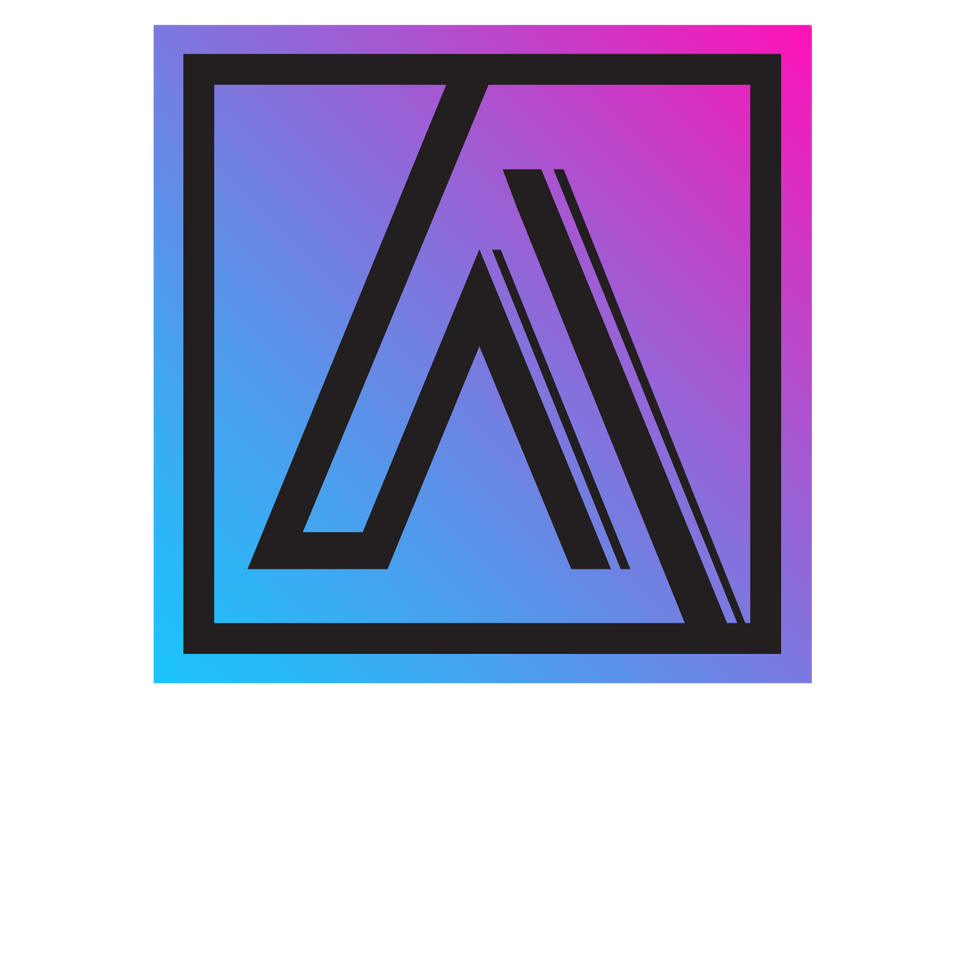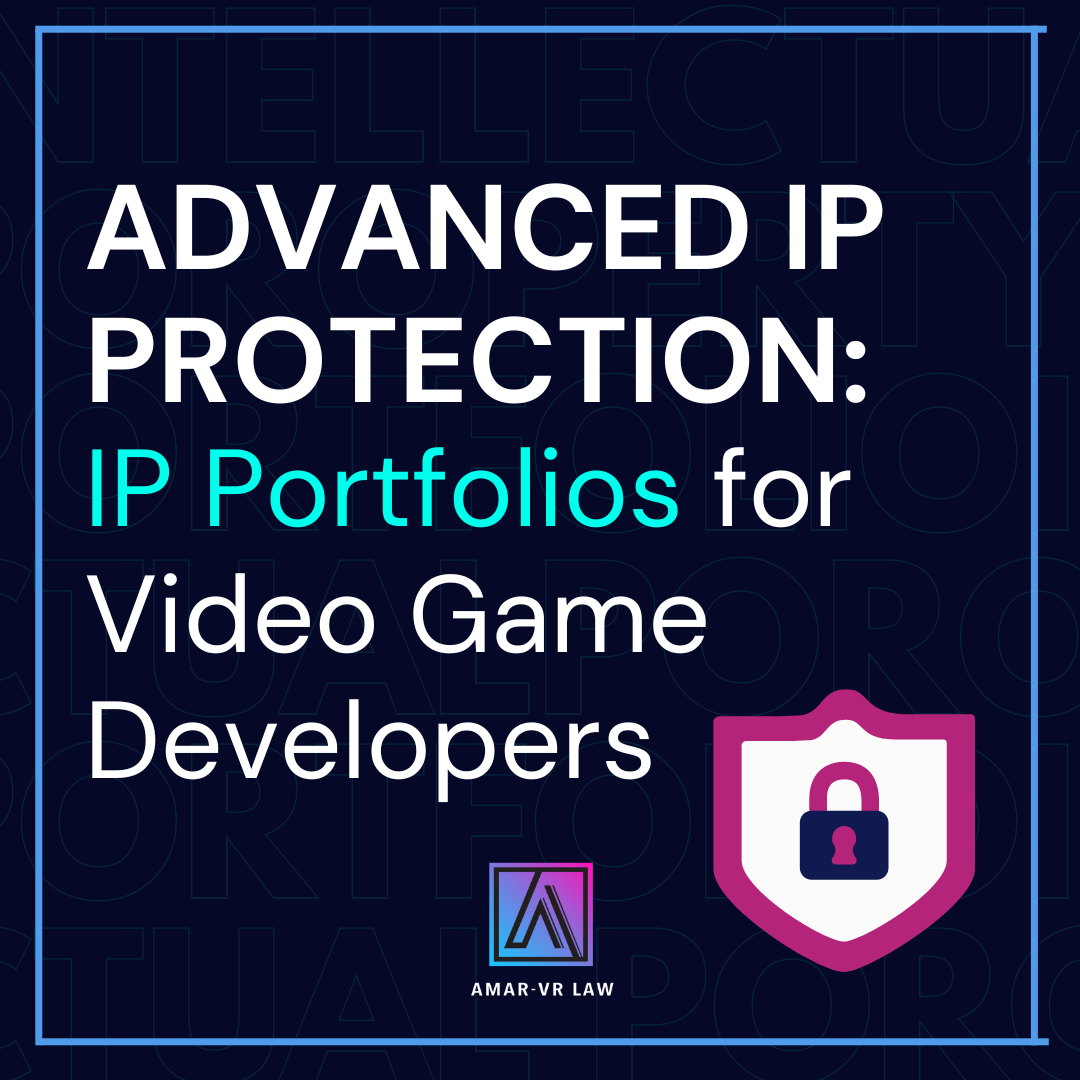
This article is for educational purposes only. Nothing in this article shall constitute legal or other professional advice or an opinion of any kind. Please contact Amar-VR Law, or your own legal counsel, if you have any questions regarding a specific legal issue.
In today’s business landscape, Intellectual Property (IP) is often the key to a successful brand. This is especially true in the Video Game industry, where developers are constantly innovating and producing new creative assets to stay competitive and keep up with trends. A strong IP portfolio helps to protect your unique ideas and designs, and can even give you a financial advantage over your competitors when used strategically.
In this piece, we’ll explain what an IP portfolio is, why it’s an essential IP protection tool for Video Game developers, and how to create an IP portfolio of your own. Let’s dive in!
What is an IP Portfolio?
An IP portfolio is a collection of legal safeguards in place to protect the intellectual property that your company owns. For Video Game developers, this might include your copyrights for characters or music, trademarks for branded assets, patented designs, and even trade secrets. Each of these represent proprietary assets that make up your brand and products, so they’re essential for protecting your creative work.
Your IP portfolio will contain all of the rights that you currently hold to your creative assets, as well as all pertinent details for rights you are currently working to obtain. If you have future projects in mind, you might even include details of the rights you plan to obtain as those projects launch. Any unregistered copyrights you hold should also be included in your IP portfolio, since Canadian laws grant automatic copyrights to a creator as soon as the work is fixed in a tangible medium of expression.
Proper IP portfolio management will include keeping records up to date, registering for protection on new creative assets as they are created, and ensuring that your IP portfolio is aligned with your business strategy and goals.
Organizing and maintaining a strong IP portfolio is one effective way that Video Game developers can protect the work of their team or studio, and find additional revenue sources from work they’ve already done.
Why is an IP Porfolio Important for Video Game Developers?

There are several good reasons why a Video Game developer would want to have an IP portfolio in place. First and foremost, it helps to protect your creative assets and prevent others from infringing on your rights. Without proper protections in place, a competitor may try to replicate parts of your Video Game, potentially limiting your profits or harming your brand image. Having a strong IP Portfolio simplifies things should you find yourself taking legal action against another party.
An IP portfolio can also provide a financial advantage over your competitors. How? A well-organized IP portfolio is easy to license or otherwise monetize, giving you the opportunity to further profit from your original work. IP portfolios streamline the process for licensing characters and creative assets, sharing gameplay mechanics, taking on merchandising agreements, and more. This can give you an edge over your competitors and position you as an industry leader.
Finally, having a comprehensive IP portfolio can help Video Game developers secure funding and build valuable partnerships. Before handing over any money, investors and publishers need to know that the project is likely to be profitable. A strong IP portfolio is a tangible way to show that your creative assets hold value, are proactively protected by law, and are worthy of their investment.
Ultimately, an IP portfolio is a significant benefit to developers, not only when it comes to legal disputes and protections, but also for marketing their brand and forging beneficial industry connections.
How to Create an IP Portfolio

Creating an IP portfolio may sound like a daunting task, especially if you’re a smaller Video Game studio that may not have much experience with IP up to this point. But there are several realistic and actionable steps that developers can take to create a strong IP portfolio, even if they aren’t well-established in the industry yet.
- Identify Intellectual Property Assets: Unsurprisingly, the first step in creating an IP portfolio is to identify the intellectual property assets that you own. This could include game mechanics, storylines, characters, graphics, and more. Make a list of your assets and determine which type of IP protection they each require (i.e. do you need a patent, trademark, or copyright?).
- Prioritize IP Assets: Once you’ve listed your IP assets, prioritize them based on their importance and value to your brand and products. This helps you devote the necessary resources to your most important assets first.
- Register For IP Protection: Now, it's time to file for IP protection. This can be a complex and time-consuming process, so it's important to work with a Video Game Lawyer who can offer guidance and ensure that all filing is done properly.
- Maintain and Monetize Your IP Portfolio: Don’t forget to update your IP portfolio regularly. This includes renewing registrations as needed, getting registered in new geographical markets you enter, and adding in new assets as they are created. If you do this correctly, you’ll be able to monetize the assets easily and without fear of bad actors exploiting your IP.
This is a task that will be easier for you if you set it up properly from the beginning. An IP portfolio is a powerful tool to have in your arsenal, but only if it’s done correctly and kept up to date. Legal guidance is strongly suggested if you haven’t created an IP portfolio in the past, or you have a large number of assets to organize and protect. You don’t want to take risks when it comes to your IP!
Conclusion
Compiling an IP portfolio can be a complicated, but rewarding, process for Video Game developers. Working with a Video Game Lawyer who specializes in IP law can help you to navigate the legal system and ensure that your creative assets are kept safe and sound.
By having a strong IP portfolio and a knowledgeable legal advisor, Video Game studios set themselves up for success. Contact Amar-VR Law if you have questions about setting up an IP portfolio of your own.

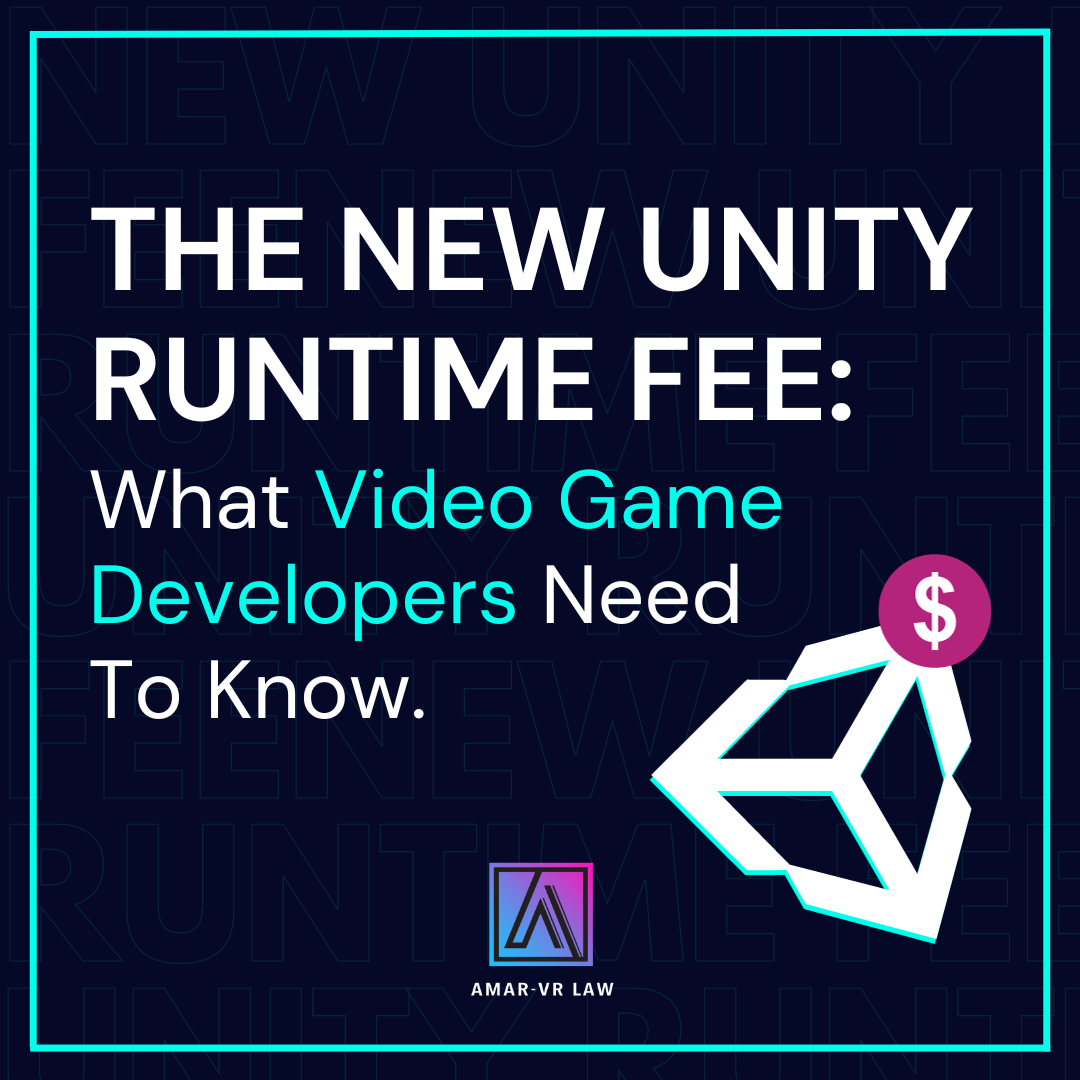

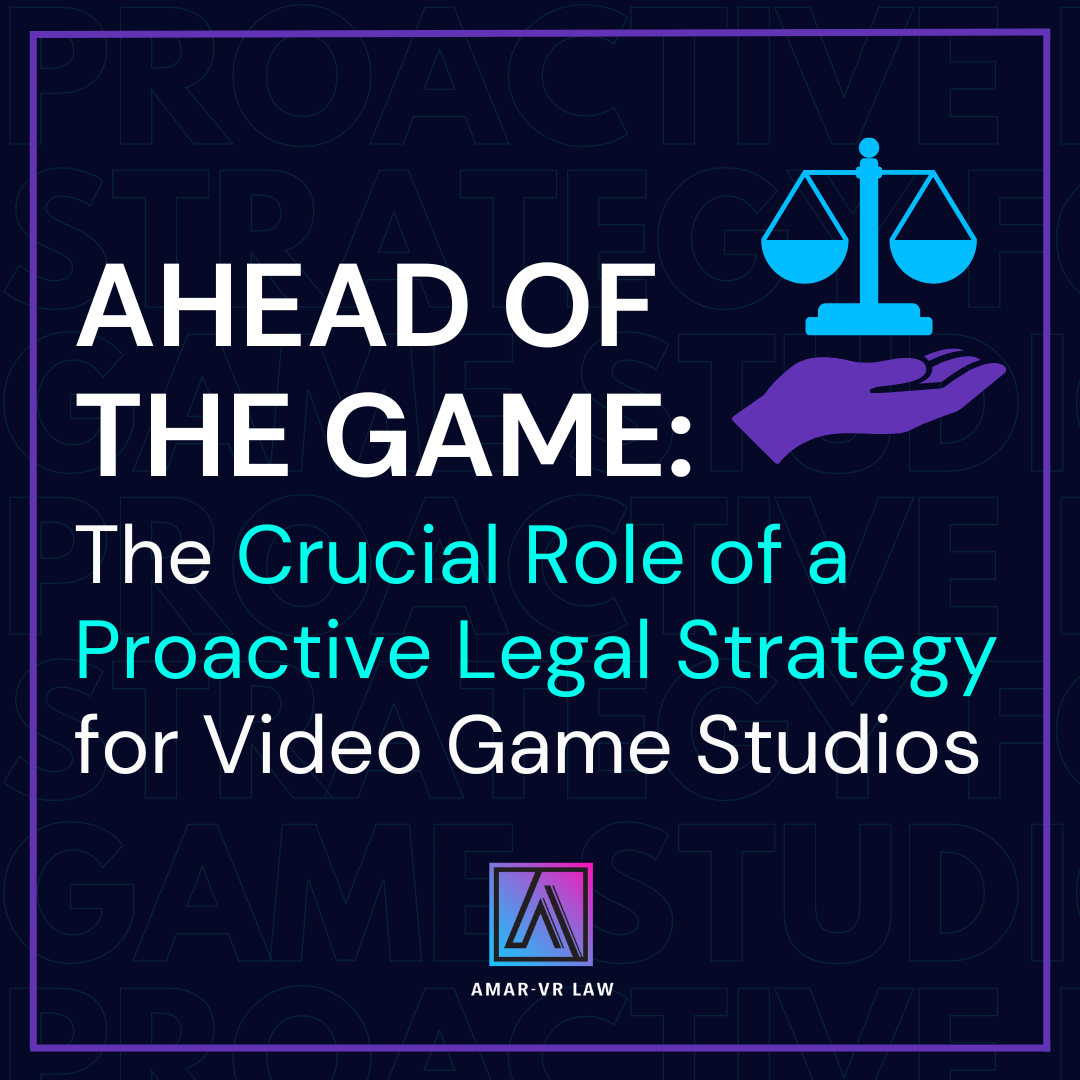
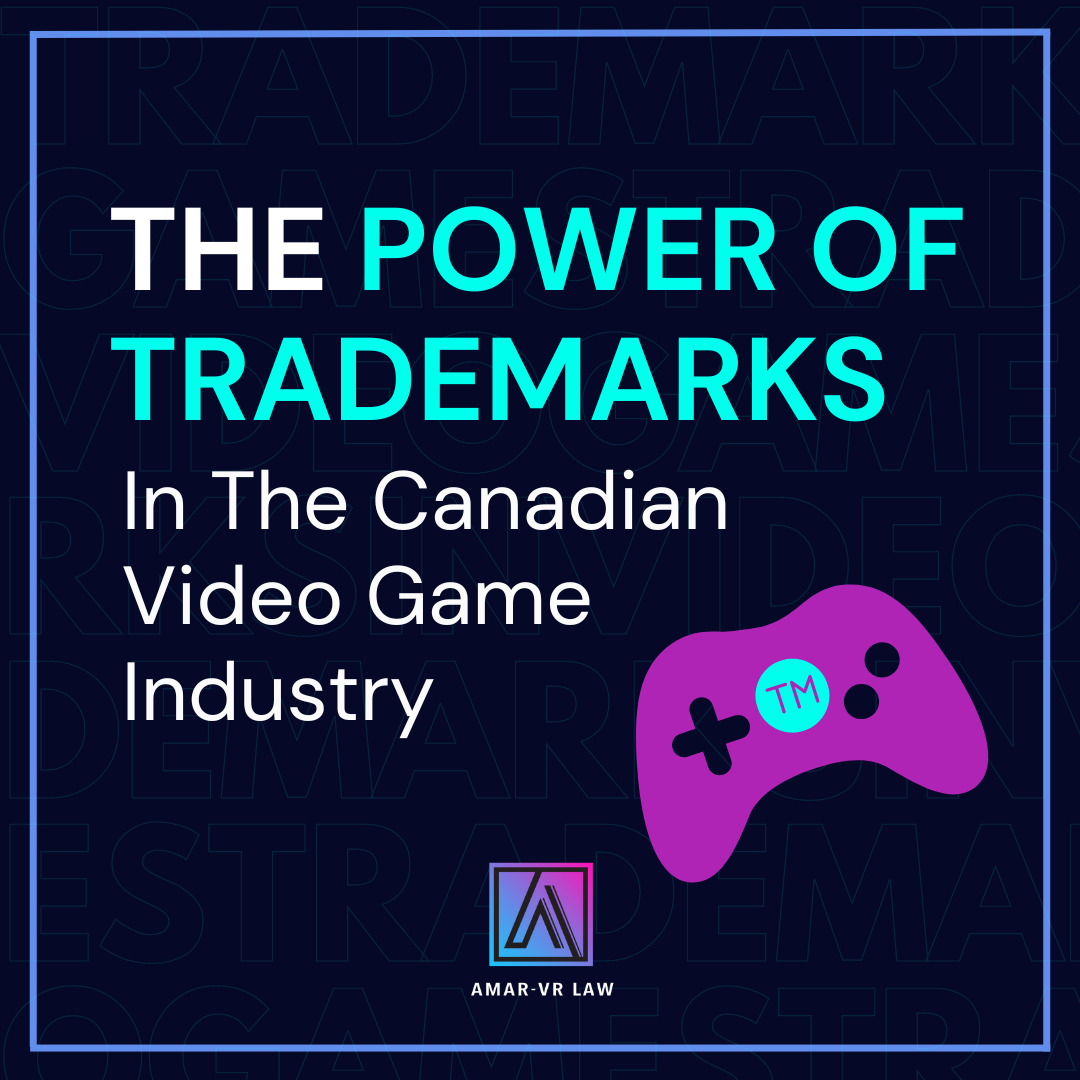
Address:
100 King Street West,
Suite 5700
Toronto, ON
M5X 1C7
Email: hello@amarvrlaw.com
Phone: 289-919-5929
Business Hours:
Monday: 10:00 AM – 6:00 PM
Tuesday to Friday: 9:00 AM – 5:00 PM
Saturday 9:00 AM – 12:00 PM
Address:
100 King Street West,
Suite 5700
Toronto, ON
M5X 1C7
Email: hello@amarvrlaw.com
Phone: 289-919-5929
Business Hours:
Monday: 10:00 AM – 6:00 PM
Tuesday to Friday: 9:00 AM – 5:00 PM









